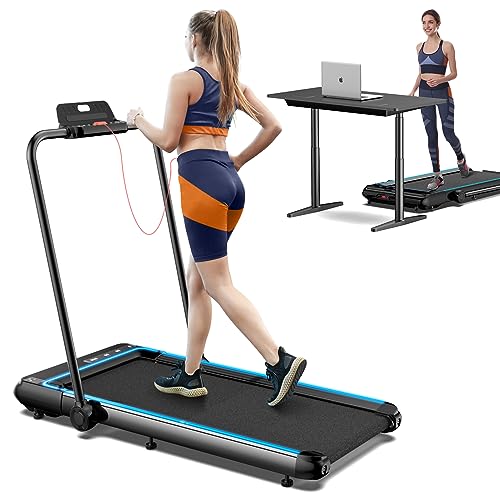New Treadmill: What's New? No One Has Discussed
The Essential Guide to Buying a New Treadmill: What You Need to Know
As fitness lovers continue to look for versatile and efficient methods to keep their physical health, treadmills stay a staple in home and industrial health clubs alike. The innovation and functions of treadmills have advanced considerably in recent years, making now an exceptional time to consider purchasing a new treadmill. This article intends to direct prospective purchasers through important aspects to consider, various kinds of treadmills readily available, and frequently asked concerns to ensure they make an educated choice.
Comprehending Treadmill Types
Before delving into specific brand names, it's worth comprehending the main kinds of treadmills available in the market. This introduction will help people identify which type best fits their physical fitness requirements and budget plan.
1. Manual Treadmills
- Description: These treadmills do not rely on electricity and are powered entirely by the user's motion.
- Pros:
- Generally more economical.
- Compact and lightweight, making them simple to store.
- Cons:
- Limited features compared to motorized treadmills.
- Less ideal for high-intensity exercises.
2. Motorized Treadmills
- Description: These treadmills come equipped with electric motors that facilitate motion and enable adjustable speed settings.
- Pros:
- Offer a large range of speed and slope choices.
- Typically equipped with advanced technology, consisting of workout programs and heart rate monitors.
- Cons:
- More pricey and need more maintenance.
- Much heavier, making them tough to move.
3. Folding Treadmills
- Description: These treadmills can be folded for convenience, making them an exceptional choice for those with minimal space.
- Pros:
- Space-saving style.
- Still provides motorized options.
- Cons:
- May sacrifice some stability and sturdiness for mobility.
4. Business Treadmills
- Description: Designed specifically for gyms and fitness centers, these treadmills are built with more long lasting materials.
- Pros:
- High-quality building and construction and longevity.
- Functions developed for intensive usage.
- Cons:
- Generally more costly and larger in size.
Comparison Table of Treadmill Types
Treadmill Type
Source of power
Secret Features
Rate Range
Perfect For
Manual
None
Standard performance
₤ 100 – ₤ 500
Beginners, budget users
Motorized
Electric
Adjustable speed/incline
₤ 500 – ₤ 3,000
All fitness levels
Folding
Electric
Space-saving functions
₤ 300 – ₤ 1,500
Limited space users
Commercial
Electric
Durability and performance
₤ 1,500 – ₤ 8,000
Gyms, heavy usage
Key Features to Look For
When purchasing a new treadmill, several essential features need to be considered:
Motor Power (HP): A more effective motor (a minimum of 2.5 HP) is vital for running and for users who plan to utilize the treadmill regularly.
Running Surface: Consider the size of the belt. Walking Machine and broader running surface can accommodate longer strides and provides much better safety.
Slope Options: Adjustable slope can add strength to workouts and target various muscle groups.
Exercise Programs: Many treadmills use built-in workout programs that can direct users through numerous workouts and regimens.
Display Features: A clear display screen enables users to track their speed, distance, calories burned, and heart rate more easily.
Cushioning: Adequate shock absorption can decrease the danger of injury and supply a more comfortable running experience.
Innovation Integration: Features like Bluetooth connectivity, mobile app combination, and built-in speakers can enhance the exercise experience.
Regularly Asked Questions (FAQs)
Q1: How much should I budget for a treadmill?
A: Budget can differ based on features and quality. Manual treadmills start around ₤ 100, while motorized models can vary from ₤ 500 to ₤ 3,000, depending on advanced functions.
Q2: How often should I preserve my treadmill?
A: Regular maintenance, including lubing the belt and examining the motor, must be done monthly. Examine the treadmill for wear and tear often.
Q3: Can I slim down with a treadmill?
A: Yes, routine use of the treadmill, combined with a healthy diet, can aid with weight loss. Integrating interval training increases strength and calorie burn.
Q4: Is it better to work on a treadmill or outdoors?
A: Both have advantages. Treadmills offer a controlled environment and cushioning, while outdoor running deals varied surroundings and natural inclines.
Q5: Do I need special shoes for utilizing a treadmill?
A: While particular treadmill shoes aren't required, using good-quality running shoes developed for support, cushioning, and stability is suggested.
Purchasing a new treadmill can substantially affect one's physical fitness journey, offering chances to work out in your home despite weather. By understanding the kinds of treadmills readily available and thinking about necessary features, individuals can pick a model that fits their lifestyle and physical fitness goals. Whether going for casual strolls or intense running sessions, the best treadmill can change workout regimens, making them more pleasurable and effective. With the increase in innovation and innovative designs, the treadmill remains a timeless and valuable tool in personal physical fitness.
